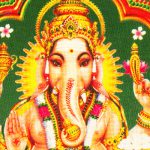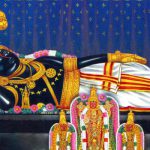Introduction
Karva Chauth is a famous festival celebrated by women across North and Central India. Karva means an earthen lamp, and Chauth means fourth. The festival falls after Poornima (full moon) on the fourth day in the month of Kartik, the harvest season, close to the popular festival of Diwali. Married women and single women, too, observe a fast Nirjala (without consuming water) from sunrise to sunset and break the fast after sighting the moon.
The festival is observed by women mainly for the well-being and longevity of their husbands. Hindu, Sikh, and married women celebrate Karva Chauth. The festival celebrates the bond between the couple and their togetherness.
Origin of Karva Chauth
There are many stories associated with the festival of Karva Chauth. Originally, it had been said that Karva Chauth reflects the special bond and sisterhood celebrated between the young bride befriending another woman, as she goes to stay with her husband and in-laws. The young bride would often feel lonely and missed having a friend, with whom she could share her problems and fears.
During the marriage ritual, the ceremony of sisterhood is sanctified. The friend becomes a sister for life and would be around the same age, married into the same village. Karva Chauth was celebrated to celebrate this special bond of friendship. The friend now a sister for life, would share her troubles.
Over the years, this festival changed and started being observed by married women to keep a fast for the good health and longevity of their husbands.
Legend of Karva Chauth
There are several stories associated with Karva Chauth, a very popular festival observed by married women in North and Central India.
According to legend, a married woman named Karva loved her husband deeply. One day, while having his bath, Karva’s husband was attacked and caught by a crocodile. Hearing his screams, Karva waded into the river. She was carrying some cotton yarn in her hand, and she tied the crocodile with it. She requested the God of Death, Yama, to send the crocodile to hell, but he refused to do so. Angered, Karva threatened to destroy him with her curse. Yama retreated and agreed to save her husband. He sent the crocodile to hell and blessed her husband with long life. Karva and her husband lived happily after that.
Another great legend is that of Savithri and Satyavan. The God of Death, Yama, came to take Satyavan’s soul as his time on earth was over. Savithri was aware of the predicted death, and she followed Yama as he carried Satyavan’s soul. Savithri pleaded with Yama to spare him, but he refused. Savithri was disappointed and refused to eat or drink. Relentlessly, she followed Yama. She praised him and his noble rule and conduct.
Impressed by Savithri’s arguments, Yama offered her a boon, to ask for anything, except for the life of Satyavan. Savithri asked that the eyesight and kingdom of her father- in-law King Dyutmasena of Salwa be restored. She asked for a hundred children for her father, King Aswapati, the ruler of Madra, as she was born after her father was granted a boon by God Savitr.
Savithri then asked for a hundred children for Satyavan and herself. Yama was placed in a dilemma, as it would mean granting life to Satyavan. He was impressed by Savithri’s dedication, her virtue, and iron will, and asked her to request one more boon. Savithri directly asked Yama to restore the life of Satyavan. Yama conceded to her request and immediately restored Satyavan’s life. He blessed the couple with four hundred years of life.
Another legend is about a queen called Veeravati. She had seven loving brothers, who were devoted to her. Veeravati married a king. She returned to her parent’s home to observe her first Karva Chauth. She observed the fast and then patiently waited for the moon to appear in the night sky, so that she could break her fast. Her brothers could not bear to see her distress, and they reflected light through peepal leaves. Veeravati thought she had sighted the moon and proceeded to break her fast, taking some food and water. However, after breaking the fast, she received news that her husband had taken ill.
Veeravati set out for the palace immediately. On her way, she encountered Shiva and Parvati. The Goddess Parvati told Veeravati that her husband had departed because she had broken her fast after seeing a false moon. The queen became distraught and immediately asked for forgiveness. Goddess Parvati blessed Veeravati, saying she could regain her husband if she agreed to keep Karva Chauth following all the rituals again. The queen readily agreed and followed the orders, after which her husband was revived.
Another legend associated with Karva Chauth is the epic Mahabharata. It is said that Draupadi held a fast for the longevity and safety of her husbands. At that time, Arjuna had gone to the Himalayas for penance, and the other brothers faced issues in his absence. Draupadi remembered Krishna, and he reminded her of an earlier situation when Goddess Parvati had kept a fast for Shiva. Draupadi was inspired, and she kept a fast for her husbands, observing all the rituals.
Rituals Associated with Karva Chauth
Married women and those who are single and seeking a husband, observe the Karva Chauth and eat Sargi, a meal prepared by their mother-in-law before dawn. The markets wear a festive look, and women buy new things. On this day, women dress in new clothes, preferably in red, gold, and orange. They apply henna and wear traditional clothes. A few days before the festival, women buy new Karvas (clay or earthen pots) and decorate them beautifully. They visit each other on the day of the festival and exchange the Karvas, which are filled with colorful ribbons, handkerchiefs, bangles, home-made candy, and other cosmetics. Parents send gifts to their daughters on this day.
The women then proceed with the fast and do not consume water even. There are community gatherings, and women apply mehndi to their hands. They narrate folk tales and read the Karva Chauth Vrat Katha and sing folk songs. Women offer worship to Goddess Parvati in the Karva Chauth Pooja, and worship Shiva, Ganesha, and Kartikeya.
In the evening, they offer a prayer to God for good health and longevity of life for their husbands. They break the fast once the moon appears, which they sight through a strainer. Other customs include sighting the moon, it’s reflection in the water contained in the vessel, or through a dupatta. They then observe their husbands through the strainer and accept sweets and water from them, thus breaking the fast. Single women also observe the fast on this day to get a good husband. They break the fast by sighting the first star in the night sky.


I don’t think the title of your article matches the content lol. Just kidding, mainly because I had some doubts after reading the article.